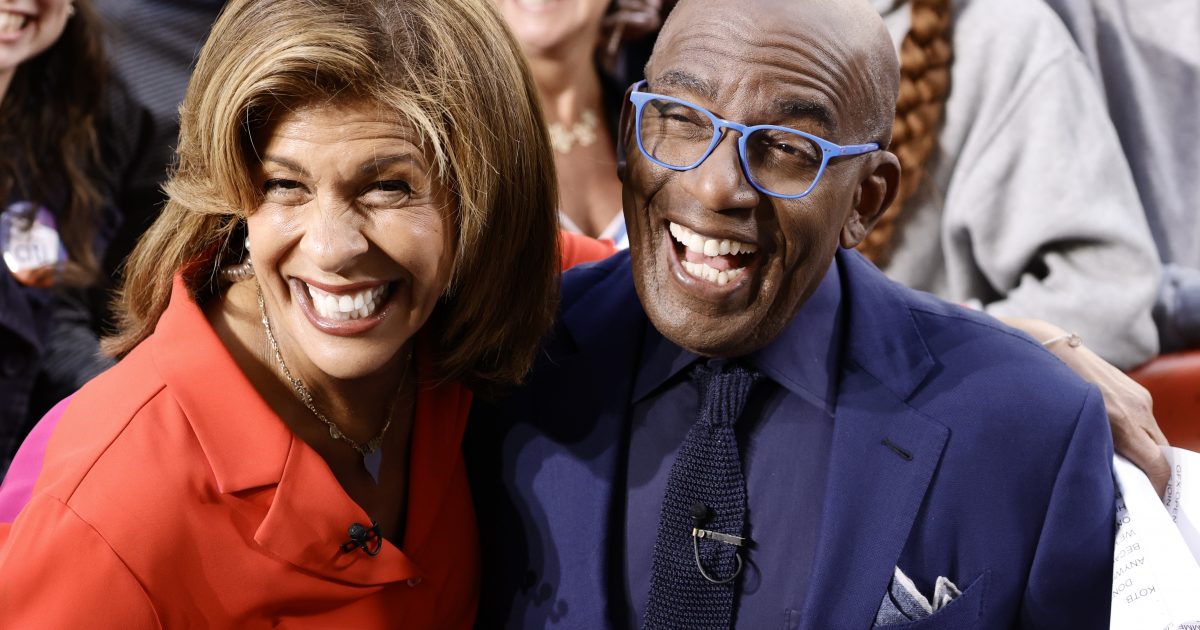The Show Must Go On
- Fellow TODAY anchors Al Roker and Hoda Kotb, both cancer survivors, were on hand last night in NYC to celebrate Broadway’s reopening after a year-and-a-half.
- Kotb had fun with the cast of Wicked, while Roker posed with the leads from Hamilton, both sporting beaming smiles in their photos shared throughout the night.
- Roker and Kotb are both advocates for cancer and are constantly use their platforms to encourage people to get in and get screened, despite the ongoing threat of the coronavirus, which almost delayed Roker.
View this post on Instagram
Fellow TODAY anchor Al Roker, 67, shared equal exuberance in his feed.
“Broadway Is BACK!!!! Watch the crowd go wild as @hamiltonmusical reopens and creator and star, Lin-Manuel Miranda gives an impassioned thank you to the audience … ”
View this post on Instagram
Another member of the TODAY gang, Craig Melvin, was also out for the festivities. Roker posted a photo of he and Melvin hanging with Hamilton stars Krystal Joy Brown and Miguel Cervantes, who play Eliza Hamilton and Alexander Hamilton.
View this post on Instagram
Appreciating Life More Than Ever
Living life after cancer is one thing, but living life after cancer and a pandemic (though we are still in the throes of it) is another.
Many peoplecancer survivors or notare appreciating life more than ever after experiencing the temporary loss of life’s daily joys we took for granted: going to a movie, a play, or simply going out to dinner. Not to mention going to school. Cancer survivors know what it feels like to be robbed of life’s moments, and now the rest of the world can share in that compassion as we try to get back to some sort of normalcy.
Like survivors, this pandemic is sure to have lasting effects on all of us, just like a cancer diagnosis.
Roker’s Prostate Cancer Diagnosis
Roker announced his prostate cancer diagnosis in November 2020. He admitted that he was very close to putting off an annual physical due to COVID, which has unfortunately been a common story. Luckily, he came to his senses and made it to his appointment, only to find out that he had prostate cancer.
"I cannot stress enough to people, go out there and get your checkup, make sure you get checked," the father of three said recently.
"Listen, I was going to put off my annual checkup, decided back in September, let me just get this done," Roker said. "And if I hadn't, (it) would not have detected the prostate cancer, which was very aggressive."
Related: The Bravery of Al Roker & Others Who Removed The Shame & Stigma of Cancer in 2020
Roker had surgery immediately after, having his prostate and some surrounding tissue and lymph nodes removed.
"My outlook and outcome might have been completely different, so I cannot stress enough to people, go out there and get your checkup, make sure you get checked," he said.
Prostate cancer is typically a slow-growing cancer that is easily treated if caught early, so the best thing you can do is get in for early screening, which experts recommend doing around 40 or 45 years old, depending on your family history.
Dr. James Brooks, a urologic oncologist at Stanford Medicine, explains the PSA (prostate specific antigen) test, which is used to screen for prostate cancer.
"If a man has an elevated PSA, he has somewhere around a 20% to 40% chance of having prostate cancer," Dr. Brooks tells SurvivorNet. "I would recommend that they get a PSA at age 45."
What are the Side Effects from Prostate Cancer Surgery
Hoda’s Breast Cancer Diagnosis
Kotb was diagnosed with breast cancer in February 2007 when she was 43 years old after doctors discovered lumps in her breast during a routine exam.
She went through a mastectomy and thankfully went into remission. Kotb had never had a mammogram before, and this experience led her to become an advocate for breast cancer prevention and awareness.
Kotb has made it her mission to ensure all women get screened for the disease in order to catch it early. Her transparency about her experience has raised awareness and made her an advocate of breast cancer prevention. By attending your annual mammograms, this increases the likelihood that the disease will be caught in an early stage, which in turn, increases your likelihood of successful treatment.
Related: It's Important To Continue Cancer Screenings Through COVID-19
Currently, guidelines suggest annual mammograms begin at the age of 45 and continue until 54. After the age of 55, women can choose to continue annual screening or opt for having them once every two years. However, there's been debate among oncologists as to whether women should start screening at the age of 40.
For those who are considered "high-risk" of breast cancer, screening should start as young as 30-years-old. Women who are considered "high-risk" are those who have had a first-degree relative who's had breast cancer; hold the the BRCA1 or BRCA2 gene mutation; or had radiation on their chest area when they were young.
Dr. Connie Lehman breaks down breast cancer screening guidelines
Learn more about SurvivorNet's rigorous medical review process.


